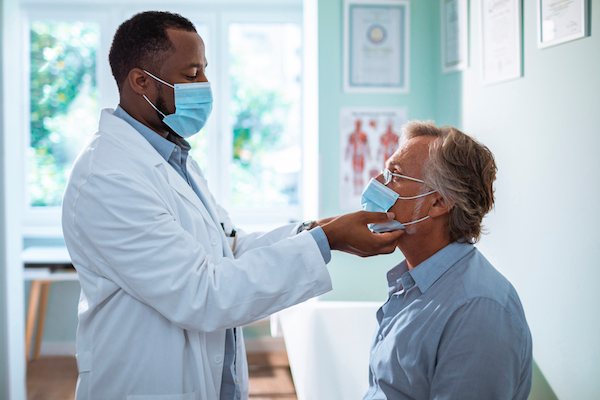Take Time Out to Take Care of Yourself
Knowing what to look for at each stage of a man’s life is important, and many men tend to put off seeing their doctors for routine physicals and preventive screenings. Schedule your physical today and consult with your doctor on the appropriate screenings and vaccinations (COVID-19, shingles, pneumonia, tetanus, influenza, etc.) you may need.

Boys ages 12 – 17
Boys are twice as likely as girls to be diagnosed with ADHD, behavioral or conduct problems, anxiety, autism spectrum disorders and cigarette dependence.* Consult a pediatrician or qualified mental health professional if your child needs help.
The major health concerns of this age group include:
- Anxiety/depression
- Alcohol or drug use
- Stress
- Eating disorders
Men ages 18 – 39
The highest rates of alcohol abuse are in men 25 to 39 years of age.*
Other health concerns of this age group include:
- Sexually transmitted disease
- Testicular cancer/lymphoma/melanoma
- Tobacco use
- Anxiety/depression
Men ages 40 – 55
The following baseline screenings are recommended:**
- Prostate cancer – Annual exams at age 50 unless you’re at high risk; then age 45
- Colorectal cancer – Colonoscopy every 10 years starting at age 50; sooner if you have risk factors
- Diabetes – Screening every three years starting at age 45; sooner if you have risk factors
Additionally, the following health issues can be of concern to men in this age group:
- Erectile dysfunction/enlarged prostate
- Cardiovascular disease/high blood pressure
- Stress/anxiety/depression
Men ages 55 and up
Chronic diseases are the leading causes of death in people ages 65 and older.* If you have a personal history of any of these diseases, see your doctor or specialist regularly.
- Heart/cardiovascular disease
- Cancer
- Chronic Obstructive Pulmonary Disease (COPD)
- Stroke
A Note about Bone Health***
While osteoporosis is more commonly considered a women’s health issue, men are not immune. To keep the bones strong, ensure a proper daily intake of calcium and Vitamin D based on your age. Increase your level of physical activity, including a variety of weight-bearing exercises such as walking, jogging, climbing stairs or racquet sports, mixed in with resistance exercises like lifting weights or using resistance machines.
Finally, avoid smoking, reduce your alcohol intake and be sure to speak with your physician if you are taking medications that cause bone loss or have underlying conditions that negatively impact bone health.
*Centers for Disease Control and Prevention (CDC)
**The National Institutes of Health
***https://www.bones.nih.gov/health-info/bone/osteoporosis/men#e
